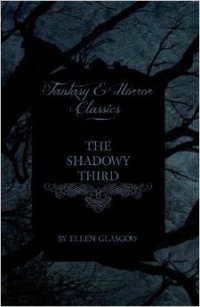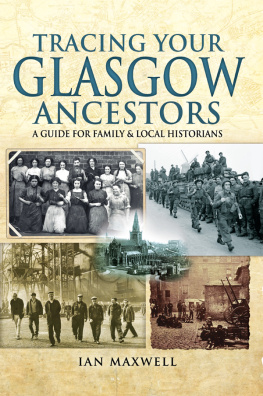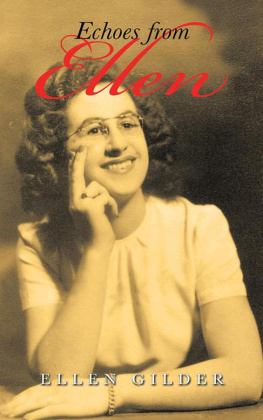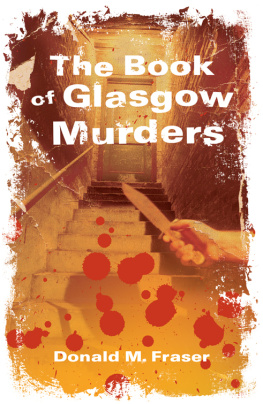Ellen Glasgow - The Sheltered Life
Here you can read online Ellen Glasgow - The Sheltered Life full text of the book (entire story) in english for free. Download pdf and epub, get meaning, cover and reviews about this ebook. genre: Prose. Description of the work, (preface) as well as reviews are available. Best literature library LitArk.com created for fans of good reading and offers a wide selection of genres:
Romance novel
Science fiction
Adventure
Detective
Science
History
Home and family
Prose
Art
Politics
Computer
Non-fiction
Religion
Business
Children
Humor
Choose a favorite category and find really read worthwhile books. Enjoy immersion in the world of imagination, feel the emotions of the characters or learn something new for yourself, make an fascinating discovery.
- Book:The Sheltered Life
- Author:
- Genre:
- Rating:3 / 5
- Favourites:Add to favourites
- Your mark:
- 60
- 1
- 2
- 3
- 4
- 5
The Sheltered Life: summary, description and annotation
We offer to read an annotation, description, summary or preface (depends on what the author of the book "The Sheltered Life" wrote himself). If you haven't found the necessary information about the book — write in the comments, we will try to find it.
The Sheltered Life — read online for free the complete book (whole text) full work
Below is the text of the book, divided by pages. System saving the place of the last page read, allows you to conveniently read the book "The Sheltered Life" online for free, without having to search again every time where you left off. Put a bookmark, and you can go to the page where you finished reading at any time.
Font size:
Interval:
Bookmark:
License
Project Gutenberg of Australia eBooks are created from printed editionswhich are in the public domain in Australia, unless a copyright noticeis included. We do NOT keep any eBooks in compliance with a particularpaper edition.
Copyright laws are changing all over the world. Be sure to check thecopyright laws for your country before downloading or redistributing thisfile.
This eBook is made available at no cost and with almost no restrictionswhatsoever. You may copy it, give it away or re-use it under the termsof the Project Gutenberg of Australia License which may be viewed online atgutenberg.net.au/licence.html
Dedication
ForARTHUR GRAHAM GLASGOWWhose affection is a shelterwithout walls
PREFACE
Nothing, except the weather report or a general maxim ofconduct, is so unsafe to rely upon as a theory of fiction. Everygreat novel has broken many conventions. The greatest of allnovels defies every formula; and only Mr. Percy Lubbock believesthat War and Peace would be greater if it were another andan entirely different book. By this I do not mean to question Mr.Lubbock's critical insight. The Craft of Fiction is thebest work in its limited field, and it may be studied toadvantage by any novelist. In the first chapters there is amasterly analysis of War and Peace. Yet, after readingthis with appreciation, I still think that Tolstoy was the bestjudge of what his book was about and of how long it shouldbe.
This brings us, in the beginning, to the most sensitive, andtherefore the most controversial, point in the criticism of prosefiction. It is the habit of overworked or frugal critics to speakas if economy were a virtue and not a necessity. Yet there arefaithful readers who feel with me that a good novel cannot be toolong or a bad novel too short. Our company is small but pickedwith care, and we would die upon the literary barricade defendingthe noble proportions of War and Peace, of The BrothersKaramazov, of Clarissa Harlowe in eight volumes, ofTom Jones, of David Copperfield, of TheChronicles of Barsetshire, of A la Recherche du TempsPerdu, of Le Vicomte de Bragelonne. Tennyson was withus when he said he had no criticism to make of ClarissaHarlowe except that it might have been longer.
The true novel (I am not concerned with the run-of-the-millvariety) is, like pure poetry, an act of birth, not a device oran invention. It awaits its own time and has its own way to beborn, and it cannot, by scientific methods, be pushed into theworld from behind. After it is born, a separate individual, anorganic structure, it obeys its own vital impulses. The heartquickens; the blood circulates; the pulses beat; the whole bodymoves in response to some inward rhythm; and in time theexpanding vitality attains its full stature. But until the breathof life enters a novel, it is as spiritless as inanimatematter.
Having said this much, I may confess that spinning theories offiction is my favourite amusement. This is, I think, a good habitto cultivate. The exercise encourages readiness and agility whileit keeps both head and hand in practice. Besides, if it didnothing else, it would still protect one from the radio and themoving picture and other sleepless, if less sinister, enemies tothe lost mood of contemplation. This alone would justify everyprecept that was ever evolved. Although a work of fiction may bewritten without a formula or a method, I doubt if the true novelhas ever been created without the long brooding season.
I have read, I believe, with as much interest as if it were anovel itself, every treatise on the art of fiction that appearedto me to be promising. That variable branch of letters shareswith philosophy the favourite shelf in my library. I know allthat such sources of learning as Sir Leslie Stephen, Sir WalterRaleigh, Mr. Percy Lubbock, Sir Arthur Quiller-Couch, Mr. E. M.Forster, and others less eminent but often more earnest, are ableto teach me, or I am able to acquire. Indeed, I know more thanthey can teach me, for I know also how very little theirknowledge can help one in the actual writing of novels. If I weregiving advice to a beginner (but there are no beginners nowadays,there is only the inspired amateur or the infant pathologist), Ishould probably say something like this: "Learn the technique ofwriting, and having learned it thoroughly, try to forget it.Study the principles of construction, the value of continuity,the arrangement of masses, the consistent point of view, therevealing episode, the careful handling of detail, and the fatalpitfalls of dialogue. Then, having mastered, if possible, everyrule of thumb, dismiss it into the labyrinth of the memory. Leaveit there to make its own signals and flash its own warnings. Thesensitive feeling, 'this is not right' or 'something ought to bedifferent' will prove that these signals are working." Or,perhaps, this inner voice may be only the sounder instinct of theborn novelist.
The truth is that I began being a novelist, as naturally as Ibegan talking or walking, so early that I cannot remember whenthe impulse first seized me. Far back in my childhood, before Ihad learned the letters of the alphabet, a character named LittleWillie wandered into the country of my mind, just as every othermajor character in my novels has strolled across my mentalhorizon when I was not expecting him, when I was not eventhinking of the novel in which he would finally take his place.From what or where he had sprung, why he was named Little Willie,or why I should have selected a hero instead of a heroineallthis is still as much of a mystery to me as it was in mychildhood. But there he was, and there he remained, alive andactive, threading his own adventures, from the time I was threeuntil I was eight or nine, and discovered Hans Andersen andGrimm's Fairy Tales. Every night, as I was undressed andput to bed by my coloured Mammy, the romance of Little Williewould begin again exactly where it had broken off the eveningbefore. In winter I was undressed in the firelight on thehearth-rug; but in summer we moved over to an open window thatlooked out on the sunset and presently the first stars in thelong green twilight. For years Little Willie lasted, nevergrowing older, always pursuing his own narrative and weaving hissituations out of his own personality. I can still see him,small, wiry, with lank brown hair like a thatch, and eyes thatseemed to say, "I know a secret! I know a secret!" Hans Andersenand the brothers Grimm were his chosen companions. He lingeredon, though somewhat sadly, after I had discovered the WaverleyNovels; but when I was twelve years old and entered the world ofDickens, he vanished forever.
In those earliest formative years Little Willie outlined,however vaguely, a general pattern of work. He showed me that anovelist must write, not by taking thought alone, but with everycell of his being, that nothing can occur to him that may notsooner or later find its way into his craft. Whatever happened tome or to Mammy Lizzie happened also, strangely transfigured, toLittle Willie. I learned, too, and never forgot, that ideas wouldnot come to me if I went out to hunt for them. They would flywhen I pursued; but if I stopped and sank down into a kind ofwatchful reverie, they would flock back again like friendlypigeons. All I had to do before the novel had formed was to leavethe creative faculty (or subconscious mind) free to work its ownway without urging and without effort. When Dorinda in BarrenGround first appeared to me, I pushed her back into someglimmering obscurity, where she remained, buried but alive, for adecade, and emerged from the yeasty medium with hard round limbsand the bloom of health in her cheeks. Thus I have never wantedfor subjects; but on several occasions when, because of illnessor from external compulsion, I have tried to invent, rather thansubconsciously create, a theme or a character, invariably theeffort has resulted in failure. These are the anmic offspring ofthe brain, not children of my complete being; and a brood whom Iwould wish, were it possible, to disinherit.
Font size:
Interval:
Bookmark:
Similar books «The Sheltered Life»
Look at similar books to The Sheltered Life. We have selected literature similar in name and meaning in the hope of providing readers with more options to find new, interesting, not yet read works.
Discussion, reviews of the book The Sheltered Life and just readers' own opinions. Leave your comments, write what you think about the work, its meaning or the main characters. Specify what exactly you liked and what you didn't like, and why you think so.












